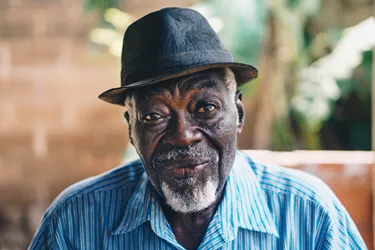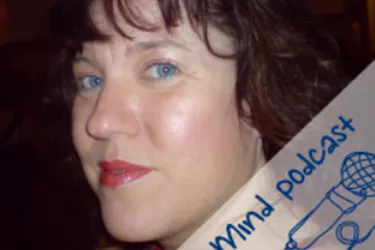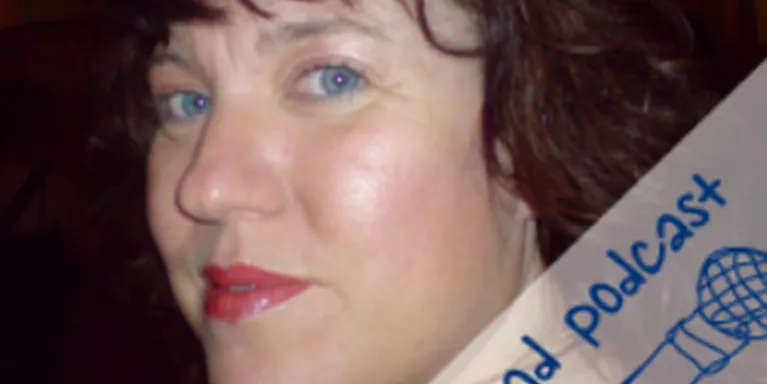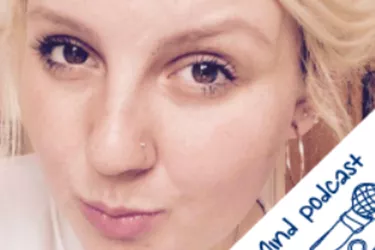Mind Podcast - Living in a therapeutic community
Clarissa talks to us about her experience of living in a therapeutic community.
For more info on some of the issues covered in this podcasts click below:
- Coping with loneliness
- Living in supported housing (e.g. therapeutic community)
- Peer support (support from other people with mental health problems)
Outside the evening is fresh and light but inside it's a different story. The place is dark except from the windows and it's quiet. Everything is calm, at least for now. Yes, I can taste the anxiety radiating from inside every person in the building. Silence is more threatening than shouting right now. It feels as if it's sneaking up on me, suffocating and putting me on edge. I'm just waiting for something to explode and change the atmosphere in a split second. But that is the nature of this place, change is not uncommon.
I wrote that piece of writing on a Sunday evening.
I can remember sitting and writing it. I think I'd been in CAMHS inpatient ward for about six months prior to this and I think it was the first piece of creative writing that I'd written and I started and I just felt like it couldn't stop. I just carried on and then I have pages and pages more.
I just found it really helpful being able to capture the emptiness that was around me because I felt so alone and there were so many, sort of, physical signs showing me I was alone.
Just having that time and, almost, ability to put it on paper was, well, it was just really important for me at the time.
"We see how everyone's doing, how everyone's day's been, what challenges people have had to face and how they're feeling with that."
And it's just such an open environment but it is open enough for you to still feel safe and to feel held. There's a group of people that all care for each other and everyone wants to hear how you're doing which is quite a different experience to what I have had in the past.
And then we have a programme throughout the week. We do group art therapy where we all come together and we have an hour and a half to use whatever materials we want and, sort of, try and explore how we are feeling through that, just as another, sort of, way to get out our emotions because sometimes it's just too difficult to talk about. You don't know what to say or the right thing. And sometimes it can be easier to try and express it in a creative way.
I really find it useful coming together as a group with all the other residents and the staff.
We eat together. We share our responsibilities in the house, so cleaning, cooking. We all have, like, a rota to get the milk and bread.
"It's really like a house and we call it a bit of a dysfunctional family."
I have my own room which is so nice and I have my own key. So it's my space and I've decorated it, like you do. It helps you so much to just get back into real life because it's like a step down from hospital.
So we can learn how to live again and how to get a job or to get back into things we like doing or learning what we actually like, again, in a supportive environment.
Now I can manage working voluntary, part-time. So I have the days and times which I go and do that and the house know about it. So they're aware and they're understanding and they know, if I'm not going to be in a group, because I'm doing this.
With a mental illness it can sometimes make you feel like no one else feels like this and you're the only one and it can make you feel so isolated and alone.
"It's almost liberating to be able to sit in a room with people who you know care about you and you care about them."
And to be able to talk about things and not feel, like, too vulnerable, because you're held by everybody.
Our opinions feel just as valid as the staff's, where you feel like you're actually a human being, which are all things which everybody deserves but for one reason or another, not necessarily had it.
It's just been, like, such a crucial part to my recovery knowing that there are people there that care about me and that I have the right to care about myself as well, because I've lived pretty much my whole life believing that I shouldn't care about myself, I shouldn't treat myself well and I don't deserve other people to treat me well either.
So coming to the therapy, to community, and coming to an environment where people do care about you, and they tell you they care about you and they show you they care about you, has been quite a different experience to many of the different hospitals I've been in.
I've come a hell of a long way and I should be proud of myself. I should allow myself to be proud of myself because I don't know how I got out of that hole but I'm doing it. I'm not out there yet but I'm a hell of a way further up than I was.


Information and support
When you’re living with a mental health problem, or supporting someone who is, having access to the right information - about a condition, treatment options, or practical issues - is vital. Visit our information pages to find out more.
Share your story with others
Blogs and stories can show that people with mental health problems are cared about, understood and listened to. We can use it to challenge the status quo and change attitudes.















